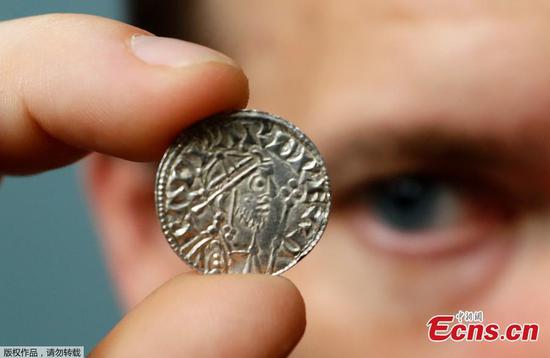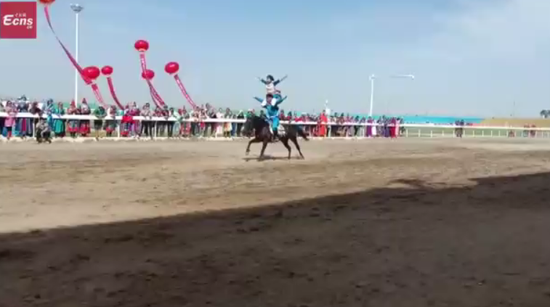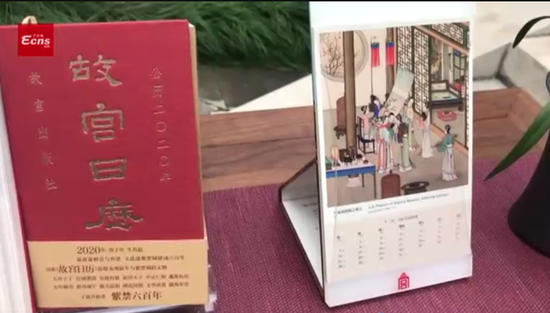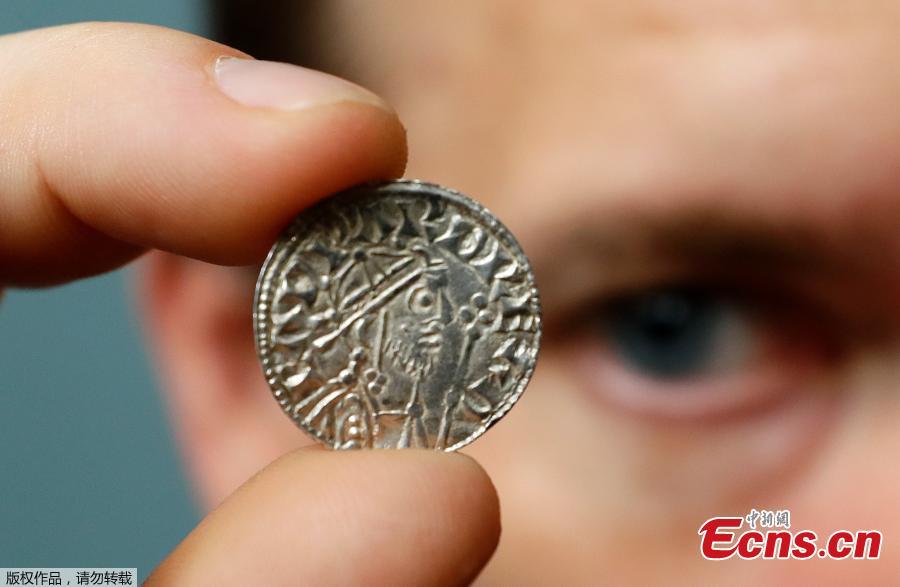
The largest hoard of coins ever discovered from the post-Norman Conquest period, found by an amateur during a metal detecting lesson, are an early example of tax avoidance, British Museum experts have said. A hoard of 2,528 coins dating back to the Battle of Hastings include rare examples of "mules", which have the face of one king on the head and another on the tail to allow coin-makers to avoid paying extra tax. Specialists at the British Museum said the collection, which contains five times the number of coins bearing the head of William the Conqueror than currently known to exist in total, would shed invaluable light on the period and ordinary people living under Norman rule. (Photo/Agencies)
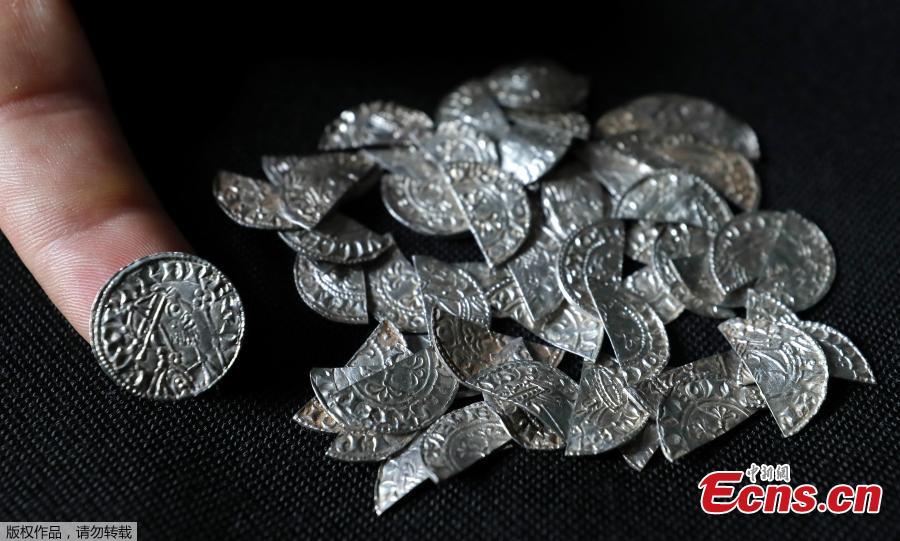
The largest hoard of coins ever discovered from the post-Norman Conquest period, found by an amateur during a metal detecting lesson, are an early example of tax avoidance, British Museum experts have said. A hoard of 2,528 coins dating back to the Battle of Hastings include rare examples of "mules", which have the face of one king on the head and another on the tail to allow coin-makers to avoid paying extra tax. Specialists at the British Museum said the collection, which contains five times the number of coins bearing the head of William the Conqueror than currently known to exist in total, would shed invaluable light on the period and ordinary people living under Norman rule. (Photo/Agencies)
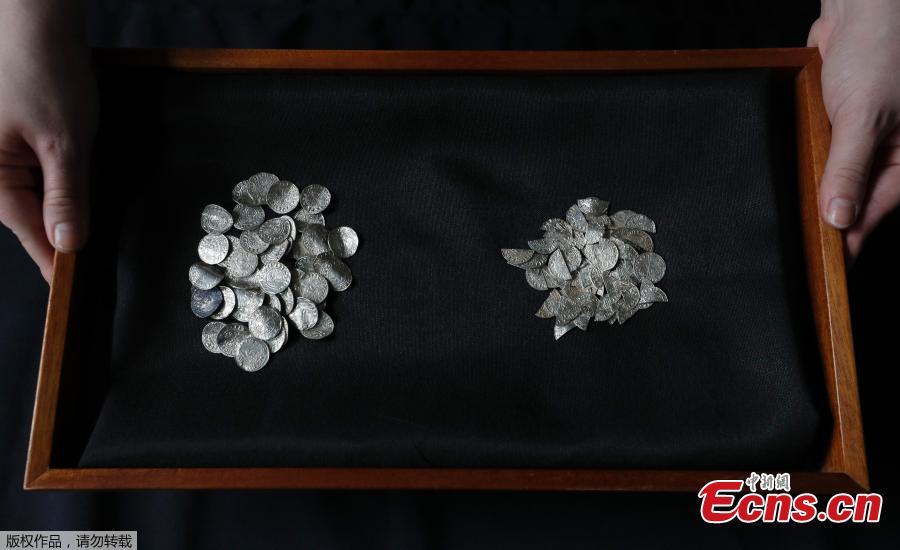
The largest hoard of coins ever discovered from the post-Norman Conquest period, found by an amateur during a metal detecting lesson, are an early example of tax avoidance, British Museum experts have said. A hoard of 2,528 coins dating back to the Battle of Hastings include rare examples of "mules", which have the face of one king on the head and another on the tail to allow coin-makers to avoid paying extra tax. Specialists at the British Museum said the collection, which contains five times the number of coins bearing the head of William the Conqueror than currently known to exist in total, would shed invaluable light on the period and ordinary people living under Norman rule. (Photo/Agencies)
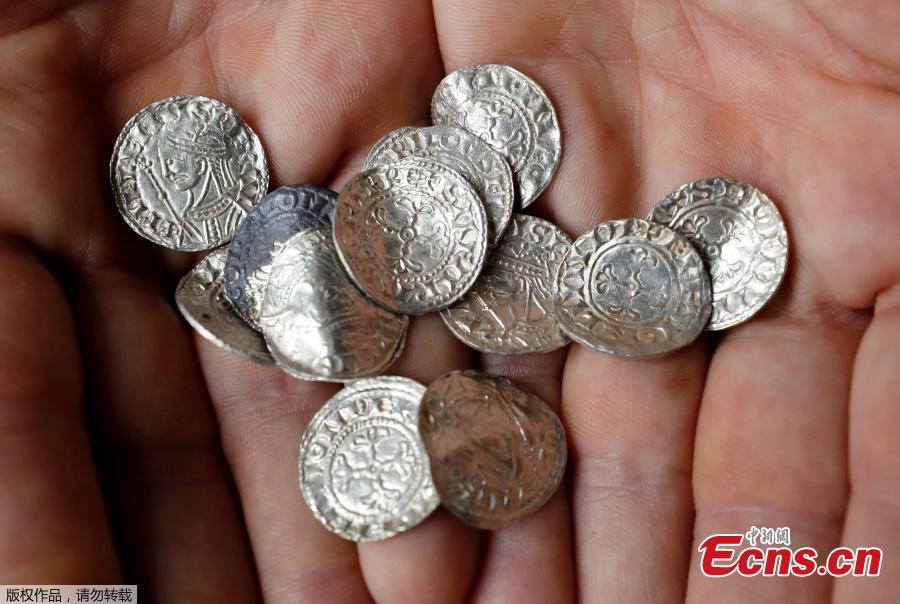
The largest hoard of coins ever discovered from the post-Norman Conquest period, found by an amateur during a metal detecting lesson, are an early example of tax avoidance, British Museum experts have said. A hoard of 2,528 coins dating back to the Battle of Hastings include rare examples of "mules", which have the face of one king on the head and another on the tail to allow coin-makers to avoid paying extra tax. Specialists at the British Museum said the collection, which contains five times the number of coins bearing the head of William the Conqueror than currently known to exist in total, would shed invaluable light on the period and ordinary people living under Norman rule. (Photo/Agencies)
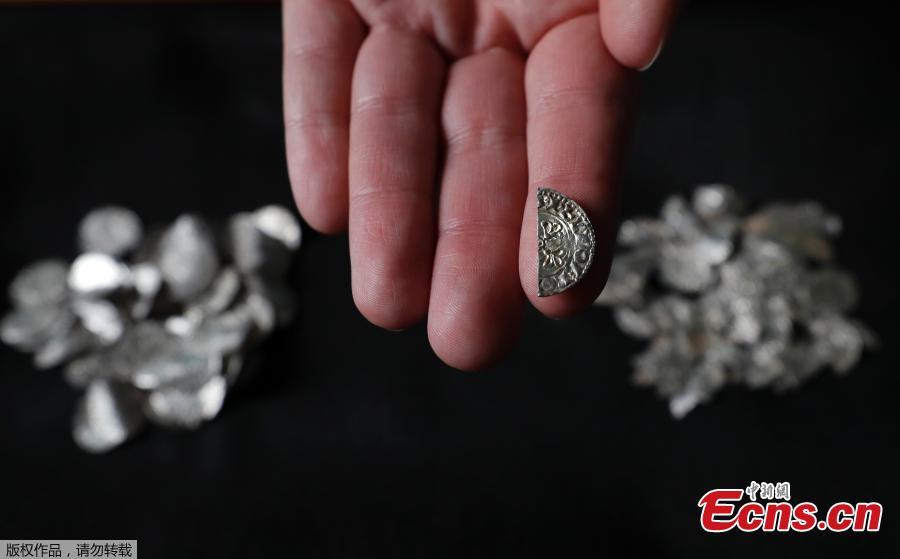
The largest hoard of coins ever discovered from the post-Norman Conquest period, found by an amateur during a metal detecting lesson, are an early example of tax avoidance, British Museum experts have said. A hoard of 2,528 coins dating back to the Battle of Hastings include rare examples of "mules", which have the face of one king on the head and another on the tail to allow coin-makers to avoid paying extra tax. Specialists at the British Museum said the collection, which contains five times the number of coins bearing the head of William the Conqueror than currently known to exist in total, would shed invaluable light on the period and ordinary people living under Norman rule. (Photo/Agencies)











